Rookie
3,203 posts
2,483
Seen 20th February 2020
21st November 2013, 10:33 AM
For all those music fans, I have written Tchaikovsky's history. It was meant to be homework, but I like sharing. He is the person who wrote the music for "The Sugar Plum Fairy"...
Tchaikovsky’s History
Tchaikovsky’s full name is Pyotr Llych Tachaikovsky. He was born on May 7th 1840, in Votkinsk. He had 5 brothers and one sister.
Tchaikovsky was able to play the piano at the age of 5. He was very sensitive and emotional, so when his mother died of cholera, in 1854, he was in deep shock. At that time, he was sent to a boarding school called St. Petersburg. He graduated in 1859, and then worked for 3 years at the Justice Department of Russian Empire.
In 1862-1865, he studied music at the St. Petersburg Conservatory. In 1866-1878, he was a professor at the Moscow Conservatory. At the time, he met Franz Liszt, and Hector Berloiz, who visited Russia with concert tours, and Tchaikovsky wrote his first ballet ‘The Swan Lake’, opera ‘Eugene Onegin’, four Symphonies, and the Piano Concerto Number 1.
Tchaikovsky was attached to woman called Desiree Artot, but their engagement was ruined by her mother, so Desiree Artot married another man. He wrote a letter to his brother, Modest, in 1876, about his decision to “marry whoever will have me.” An admirer, Antonina Ivanovna Milyukova, was writing him love letters. She threatened to kill herself if Tchaikovsky didn’t marry her. There marriage was in the summer of 1877, and lasted for only a few weeks, which caused Tchaikovsky a nervous breakdown. He attempted suicide by drowning himself. In 1877, Milyukova ended up in an insane asylum, where she spent over 20 years, and died.
Tchaikovsky was ordered by doctors to leave Russia until his emotional health restored. He lived in Europe for a few years, and settled with his brother, in a village of Clarens on Lake Ganeva, and lived there in 1877 – 1878. There he wrote a very popular Violin Concerto in D. He also finished his Symphony Number 4, which was deticated to Nadezhda Von Meck. From 1877-1890, Tchaikovsky was financially supported by a wealthy widow called Nadezhda Von Meck She loved to Tchaikovsky’s music, and became his pen-friend. They exchanged over one thousand letters in 14 years, but never met. In 1890, she lost all communication due to bankruptcy.
Tchaikovsky played an important role in the artistic development or Sergi Rachmaninov. They met in 1866, when Rachmaninoff was only 13, and studied the music of Tchaikovsky. Tchaikovsky joined many other musicians in recommendation that Rachmaninov was to be awarded the Gold Medal in 1892. Later, Tchaikovsky was involved in an opera called ‘Aleko’, which was included in the repertory and preformed and the Bolshoi Theatre.
In 1883-1893, Tchaikovsky wrote his best Symphonies, number 5 and number 6, ballets ‘The Sleeping Beauty’, and and ‘The Nutcracker’, and operas, ‘The Queen of Spades’, and ‘Lolanta’. In 1888-1889, he made a successful tour of Europe, appearing in Prague, Leipzig, Hamburg, Paris, and London. In 1891, he went to a two month tour of America, where he gave concerts in New York, Baltimore, and Philadelphia. In 1891, Tchaikovsky was the conductor on the official opening night of Carnegie Hall in New York. In 1892, he heard Gustav Mahler conducting his opera ‘Eugene Onegin’ in Hamburg. Tchaikovsky conducted the premiere of his Symphony number 6 in St. Petersburg, on the 16th of October, 1893. A week later; he died from drinking tap water, and was buried at the Necropolis of Artists at St. Aleksandr Nevsky Monastery in St. Petersburg.
Tchaikovsky’s History
Tchaikovsky’s full name is Pyotr Llych Tachaikovsky. He was born on May 7th 1840, in Votkinsk. He had 5 brothers and one sister.
Tchaikovsky was able to play the piano at the age of 5. He was very sensitive and emotional, so when his mother died of cholera, in 1854, he was in deep shock. At that time, he was sent to a boarding school called St. Petersburg. He graduated in 1859, and then worked for 3 years at the Justice Department of Russian Empire.
In 1862-1865, he studied music at the St. Petersburg Conservatory. In 1866-1878, he was a professor at the Moscow Conservatory. At the time, he met Franz Liszt, and Hector Berloiz, who visited Russia with concert tours, and Tchaikovsky wrote his first ballet ‘The Swan Lake’, opera ‘Eugene Onegin’, four Symphonies, and the Piano Concerto Number 1.
Tchaikovsky was attached to woman called Desiree Artot, but their engagement was ruined by her mother, so Desiree Artot married another man. He wrote a letter to his brother, Modest, in 1876, about his decision to “marry whoever will have me.” An admirer, Antonina Ivanovna Milyukova, was writing him love letters. She threatened to kill herself if Tchaikovsky didn’t marry her. There marriage was in the summer of 1877, and lasted for only a few weeks, which caused Tchaikovsky a nervous breakdown. He attempted suicide by drowning himself. In 1877, Milyukova ended up in an insane asylum, where she spent over 20 years, and died.
Tchaikovsky was ordered by doctors to leave Russia until his emotional health restored. He lived in Europe for a few years, and settled with his brother, in a village of Clarens on Lake Ganeva, and lived there in 1877 – 1878. There he wrote a very popular Violin Concerto in D. He also finished his Symphony Number 4, which was deticated to Nadezhda Von Meck. From 1877-1890, Tchaikovsky was financially supported by a wealthy widow called Nadezhda Von Meck She loved to Tchaikovsky’s music, and became his pen-friend. They exchanged over one thousand letters in 14 years, but never met. In 1890, she lost all communication due to bankruptcy.
Tchaikovsky played an important role in the artistic development or Sergi Rachmaninov. They met in 1866, when Rachmaninoff was only 13, and studied the music of Tchaikovsky. Tchaikovsky joined many other musicians in recommendation that Rachmaninov was to be awarded the Gold Medal in 1892. Later, Tchaikovsky was involved in an opera called ‘Aleko’, which was included in the repertory and preformed and the Bolshoi Theatre.
In 1883-1893, Tchaikovsky wrote his best Symphonies, number 5 and number 6, ballets ‘The Sleeping Beauty’, and and ‘The Nutcracker’, and operas, ‘The Queen of Spades’, and ‘Lolanta’. In 1888-1889, he made a successful tour of Europe, appearing in Prague, Leipzig, Hamburg, Paris, and London. In 1891, he went to a two month tour of America, where he gave concerts in New York, Baltimore, and Philadelphia. In 1891, Tchaikovsky was the conductor on the official opening night of Carnegie Hall in New York. In 1892, he heard Gustav Mahler conducting his opera ‘Eugene Onegin’ in Hamburg. Tchaikovsky conducted the premiere of his Symphony number 6 in St. Petersburg, on the 16th of October, 1893. A week later; he died from drinking tap water, and was buried at the Necropolis of Artists at St. Aleksandr Nevsky Monastery in St. Petersburg.
































 Hunters
Hunters 

 Nerds
Nerds 
